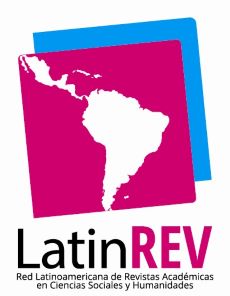Restorative justice and protection measures in cases of violence against women
DOI:
https://doi.org/10.29105/msc4.6-68Keywords:
Violence, conciliation, protection measures, restorationAbstract
This investigative work is about a documentary review of a descriptive nature, through doctrinal and legislative review, which addresses the importance of restorative justice focused on the special protection of victims of violence, instead of focusing solely on punishing the aggressor, allowing to the affected women the opportunity to tell their story, express their feelings and needs; Thus, it also provides the opportunity for the perpetrators to assume their responsibilities for the acts committed, ask for forgiveness or apologies to the victim, repairing the damage caused, through dialogue, measurement, conciliation and on a voluntary basis by those involved, but above all of the victim, thus guaranteeing a life free of violence, promoting the culture of peace and good living.
In Ecuadorian criminal legislation, in cases of violence against women, protective measures are established in favor of the victim, such as: prohibition of the aggressor from approaching the victim, from carrying out acts of persecution or intimidation, extension of a relief ticket in favor of the affected woman, among others, however, the lack of application of restorative justice has prevented these measures from being effective.
In the Mexican State of Nuevo León and specifically in the General Law of Access for Women to a Life Free of Violence, it contemplates forms of prevention through which measures and actions are applied to protect women victims of violence.
Downloads
References
Asamblea Constituyente. (2021, 25 de enero). Constitución de la República del Ecuador. Registro Oficial. Obtenido de www.registroficial.gob.ec
Asamblea Nacional del Ecuador. (2023, 04 de enero). Código Orgánico Integral Penal. Registro Oficial. Obtenido de www.registroficial.gob.ec
Corte Constitucional del Ecuador. (2010). Sentencia Nro. 021-10-SEP-CC. Obtenido de www.corteconstitucional.gob.ec
Corte Constitucional del Ecuador. (2021 del 02 de junio). Sentencia Nro. 36315EP/21. Quito. Obtenido de www.corteconstitucional.gob.ec
Cunneen, C., & Goldson, B. (2015). Restorative Justice? A Critical Analysis. youth, Crime and Justice(2), 137-156. Obtenido de https://papers.ssrn.com/sol3/papers.cfm?abstract_id=2655454
De Gamboa, C. (2004). Perdón y reconciliación política: dos medidas restaurativas para enfrentar el pasado. Estud. Socio-Juríd., 6(1), 81-110. Obtenido de http://www.scielo.org.co/pdf/esju/v6n1/v6n1a03
Martínez , C. (2015). LA JUSTICIA RESTAURATIVA Y UN MODELO. Revista de Derecho UN UNED(16), 1237-1263. Obtenido de https://revistas.uned.es/index.php/RDUNED/article/view/15252/13357
Ríos Martín, J. (2016). Justicia Restaurativa y mediación penal. Revista cuatrimestral de las Facultades de Derecho y Ciencias Económicas y Empresariales(98), 103-126. Obtenido de https://repositorio.comillas.edu/xmlui/bitstream/handle/11531/13749/art.mediaci%C3%B3n%20revista%20icade.pdf?sequence=1 DOI: https://doi.org/10.14422/icade.i98.y2016.004
Rodríguez, G. (2015). LA IMPLEMENTACIÓN DE LA JUSTICIA RESTAURATIVA EN LOS CASOS DE VIOLENCIA FAMILIAR EN EL ESTADO DE NUEVO LEÓN. (Tesis Doctoral). Universidad Autónoma de Nuevo León.
Saldaña, H., & Gorjon, G. (2020). Causas y Consecuencias de la violencia familiar: Caso Nuevo León. Justicia, 199-199.
Sampedro Arrubla, J. (2010). La justicia restaurativa: una nueva vía, desde las víctimas, en la solución al conflicto penal. Rev. Colomb. Derecho Int. ildi(17), 87-124. Obtenido de http://www.scielo.org.co/pdf/ilrdi/n17/n17a04.pdf
Vargas, S. (2019). Derecho Penal Mínimo y Justicia Restaurativa. (Tesis de Maestría). Universidad Técnica de Ambato, Ambato.
Downloads
Published
How to Cite
Issue
Section
License
Copyright (c) 2023 Journal MSC Métodos de Solución de Conflictos. Revista Internacional de Investigación Científica y Práctica en MSC

This work is licensed under a Creative Commons Attribution-NonCommercial 4.0 International License.
Los autores/as que publiquen en esta revista aceptan las siguientes condiciones:
a. Los autores/as conservarán sus derechos de autor y garantizarán a la revista el derecho de primera publicación de su obra, el cual estará simultáneamente sujeto a la Licencia Creative Commons Atribución-NoComercial 4.0 Internacional. que permite a terceros compartir la obra siempre que se indique su autor y su primera publicación esta revista.
b. Los autores/as pueden realizar otros acuerdos contractuales independientes y adicionales para la distribución no exclusiva de la versión del artículo publicado en esta revista (p. ej., incluirlo en un repositorio institucional o publicarlo en un libro) siempre que indiquen claramente que el trabajo se publicó por primera vez en MSC Métodos de Solución de Conflictos.
c. Se permite y recomienda a los autores/as a publicar su trabajo en Internet (por ejemplo en páginas institucionales o personales) posterior al proceso de revisión y publicación, ya que puede conducir a intercambios productivos y a una mayor y más rápida difusión del trabajo publicado (Véase El efecto del acceso abierto).







 MSC Métodos de Solución de Conflictos Vol. 5 Núm. 9, Julio-Diciembre 2025, es una publicación semestral editada por la Universidad Autónoma de Nuevo León, a través de la Facultad de Derecho y Criminología. Dirección de la publicación: Av. Universidad s/n Cd. Universitaria C.P. 66455, San Nicolás de los Garza, Nuevo León, México. revistamsc.uanl.mx, revistamsc@uanl.mx. Editor responsable: Dr. Francisco Javier Gorjón Gómez. Reserva de Derechos al Uso Exclusivo núm. 04-2023-110310161600-102 ISSN 2992-8370, ambos otorgados por el Instituto Nacional del Derecho de Autor. Responsable de la última actualización: Dr. Paris Alejandro Cabello Tijerina, Facultad de Derecho y Criminología Av. Universidad s/n Cd. Universitaria C.P. 66451, San Nicolás de los Garza, Nuevo León, México. Fecha de la última modificación: 28 de julio de 2025.
MSC Métodos de Solución de Conflictos Vol. 5 Núm. 9, Julio-Diciembre 2025, es una publicación semestral editada por la Universidad Autónoma de Nuevo León, a través de la Facultad de Derecho y Criminología. Dirección de la publicación: Av. Universidad s/n Cd. Universitaria C.P. 66455, San Nicolás de los Garza, Nuevo León, México. revistamsc.uanl.mx, revistamsc@uanl.mx. Editor responsable: Dr. Francisco Javier Gorjón Gómez. Reserva de Derechos al Uso Exclusivo núm. 04-2023-110310161600-102 ISSN 2992-8370, ambos otorgados por el Instituto Nacional del Derecho de Autor. Responsable de la última actualización: Dr. Paris Alejandro Cabello Tijerina, Facultad de Derecho y Criminología Av. Universidad s/n Cd. Universitaria C.P. 66451, San Nicolás de los Garza, Nuevo León, México. Fecha de la última modificación: 28 de julio de 2025.